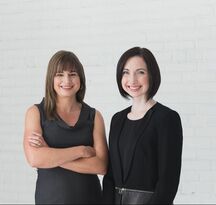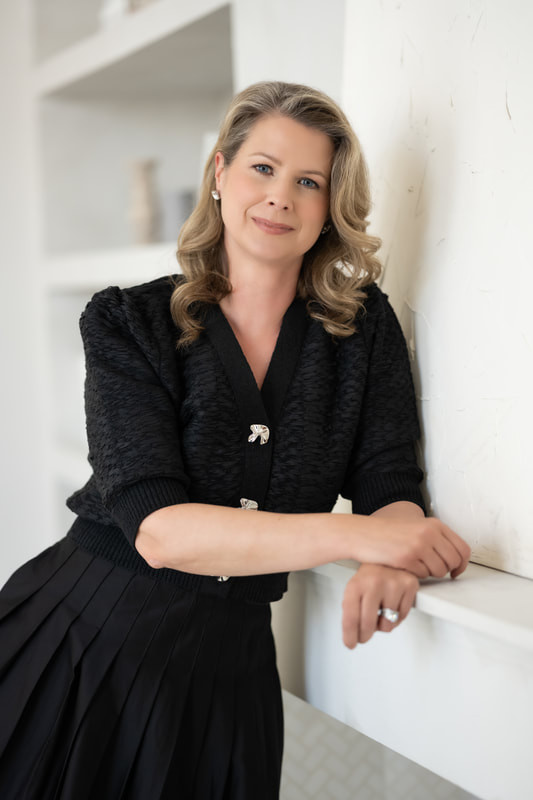 For this profile in this new series, we shift from the larger law firm setting (see our profile on Lerners LLP) to see what a boutique law firm is doing to address EDI. Starting your own firm means starting with a blank slate. Read on to see what Angela Casey and Angelique Moss have done to address EDI as they build their firm from the ground up (and what the steps they took when they noticed they might be falling into the 'old boys club' trap): 1. Almost all law firms have an equality/equity, diversity and inclusion (“EDI”) policy or commitment on their website. What does EDI mean to your firm and is improving EDI a priority? For us, it started with equality in the partnership. There are no Casey clients or Moss clients. There are only Casey and Moss clients. Our model of partnership is actually very old-fashioned. We are not just partners but friends who genuinely care about each other. We share management duties equally and rewards equally. We have equal voices in decision making. We support each other rather than compete with each other. The culture of our firm is family friendly. Our technology is set up so that our lawyers can practice from anywhere. I once worked from my hotel room between games at my son’s hockey tournament with a colleague who was plugged in at home during her baby’s nap time. We don’t schedule meetings at times that would conflict with daycare pick up and drop off times. We also offer remote work options for staff who need to work around family obligations. We offer our lawyers flexible work and compensation arrangements to allow them to align their career goals and family obligations and/or interests outside of the law. We recognize that there is no ‘one size fits all’ and that goals and responsibilities can change over time. Our compensation structure is intended to accommodate anyone – male or female, with children or without, and those wanting to work fewer or more hours. We also have a parental leave policy which allows firm members – male or female, adoptive parent or birth parent - to take 17 weeks of paid parental leave plus one additional paid month of leave for each year they have been with us. We believe that the key to gender equality is not only to create workplaces friendly to women returning to work, but also to support and encourage men who are doing their share of parenting and household work. At a recent Ontario Bar Association event, one of my male colleagues at another small firm showed me about 50 pictures of his new baby on his phone and was positively giddy about leaving the reception to go home and play with his baby. That made my heart happy. For our staff, we try to create opportunities to contribute in ways that play to their individual strengths. Our clerks are bright, hardworking, and have fabulous people skills. With the type of work we do (estate litigation and estate administration), there are many opportunities to involve them in a wide variety of tasks. Because we are small, lean and specialized, we can offer fixed fee packages and lower hourly rate services by maximizing our use of staff and lawyer time. For each task within a mandate, we ask ourselves who can do the task best, most efficiently, and at the lowest cost for the client. Depending on the task, it might be a student, a clerk, a legal assistant, or a lawyer, and we try to think creatively when developing a work plan. This is great for our clients, who save money by either paying the lowest appropriate hourly rate, or by purchasing a fixed fee package. It also benefits our staff by allowing them to assume more challenging roles and responsibilities as they grow with us. We want our staff to take ownership of their work, so that they feel invested in our clients’ files, and also to know that they have contributed to our firm’s success. Because we could not do the work we do without great support staff. 2. What steps (or initiatives) has your firm taken to address and improve EDI? Being a new firm, we have the advantage of being able to prioritize diversity from the outset. There is no entrenched culture where we try to fit new people into a pre-existing mold. We can keep our minds open about how the firm will grow and develop. Rather than looking at who will be the best fit for the firm, we can focus on building the firm to fit the needs of its team members and clients. It’s a more inclusionary premise. Promoting and encouraging diversity makes business sense for us, given our specialization in estates, trusts and capacity litigation. Our clients are typically going through some type of family conflict in the wake of a death or a dementia diagnosis. These issues are deeply personal. We need to talk about and document details of our clients’ family lives, which they may never have shared outside of their immediate family. Now they are sitting in a boardroom talking (and often crying) about these very private topics. Having lawyers and staff from different backgrounds and with different perspectives is a real advantage for us in this practice area. 3. Which initiative has been the most successful? And Why? We have regularly scheduled lunch meetings with the entire team. At these team meetings, we discuss ideas, ongoing initiatives, draft policies, and ways to improve our work flow. Everyone is welcome to contribute to the conversation. For instance, at our last meeting, we were happy to see our most recent hire asking questions and contributing to the conversation. In addition to our formal team meetings, we regularly gather the whole team to get to know each other in a more social setting. When a team member has a birthday, the firm goes out for lunch together. Getting together for meals in a casual setting outside of the office is a great way to learn more about each other, and this deepens our respect for each other. 4. Which initiative was the least successful (what’s not working?) And why? Initially, we tended to attract potential associates who are like us, not just professionally but also on a personal level. When it was just the two of us, we marveled at how much we had in common – we both ride our bikes to work, we both enjoy craft beer, we share the same taste in food, books, Netflix, and humour. When we added our first lawyer to our team, we were pleasantly surprised to find out that she also rides a bike to work and loves craft beer. Our second associate hire was another bike-riding female lawyer who shares similar interests. Not long ago, a colleague reached out to tell us about a fantastic lawyer who she thought we might want to meet. This candidate had all the qualities we would look for in a lawyer - she was a respected and passionate advocate, an excellent writer, and, as our colleague pointed out to us, she was a funny, bike-riding beer drinker, who would “fit right in”. It was kind of amusing at the time, but it did cause us to reflect about our hiring criteria. Were we starting to do what the “old boys club” was guilty of on Bay Street – subconsciously stacking our team with people who look and think like us? We want to welcome all people who share our firm’s values – not just those who are like us - and we want to make a conscious effort to make sure that everyone on the team feels included. Breaking the mold, our third associate hire was a man (and we haven’t seen his bike…yet). Now, our team of 9 (5 lawyers, 1 articling student and 3 clerks) is a very diverse group. 5. What is your goal? What do you hope to achieve through your EDI actions? We have set out to prove that it is possible to create a supportive and inclusive work environment, while delivering uncompromising excellence in our advocacy work for clients. In order to accomplish this, we believe in investing in our team members for the long term. For instance, the second associate lawyer we hired was pregnant at the time we hired her. We knew that she would be a great fit at our firm – she was an accomplished litigator with a Bay Street pedigree who shared our values and our passion for helping people. She wasn’t really looking for a new job at the time we met her; she was just feeling out what practicing law would or could be like after having a child. We made her an offer immediately. When she told us that she was pregnant and wasn’t sure it was the right time to make a move, our first response was, “well, we’re still in if you’re in”. Ultimately, we want to create a partnership where each new partner feels that he or she has an equal voice in shaping the future of the firm. We also strongly believe that each team member needs to feel his or her contributions to the firm are valued. Finally, we want our team to feel supported when they contribute to their families and communities and otherwise have a life outside of law. We are still a young firm, but we are proud of what we have accomplished so far. ------------------------------------------------------------------------------- Thank you Angela and Angelique for taking the time to thoughtfully answer these questions and letting us know about your goals. Stay tuned for the next post soon. Sign up to have these profiles sent directly to your email address! The idea for this series surfaced last year when I attended a women lawyers conference where the conversation quickly turned to criticizing and calling out law firms for not doing enough to make a positive change. The conversation went on for quite some time with example after example of all that is wrong with law firms. Unfortunately, no one talked about possible solutions. . . . . .So with my new series, I wanted to reach out to law firms and find out what they are doing to advance EDI in their firms. Are they doing anything? What is working? What isn't? What is the end-goal? How do they measure "success"? The posts will include a set of five questions that each firm will answer. My simple goal is to start a conversation, find out what is happening in this area in law firms across Canada, and perhaps we can all learn from each other.
0 Comments
Your comment will be posted after it is approved.
Leave a Reply. |
Erin C. Cowling is a former freelance lawyer, entrepreneur, business and career consultant, speaker, writer and CEO and Founder of Flex Legal Network Inc., a network of freelance lawyers.
Categories
All
Archives
December 2022
|
|
(C) 2014-2024 Cowling Legal. All rights reserved.
|
Please note I am not currently practicing law.
Information on this website does not constitute legal advice and is for informational purposes only. Accessing or using this website does not create a solicitor-client relationship. See website Terms of Use/Privacy Policy. info@cowlinglegal.com
3080 Yonge Street, Suite 6060 Toronto,ON M4N 3N1 (appointment only) |






 RSS Feed
RSS Feed
